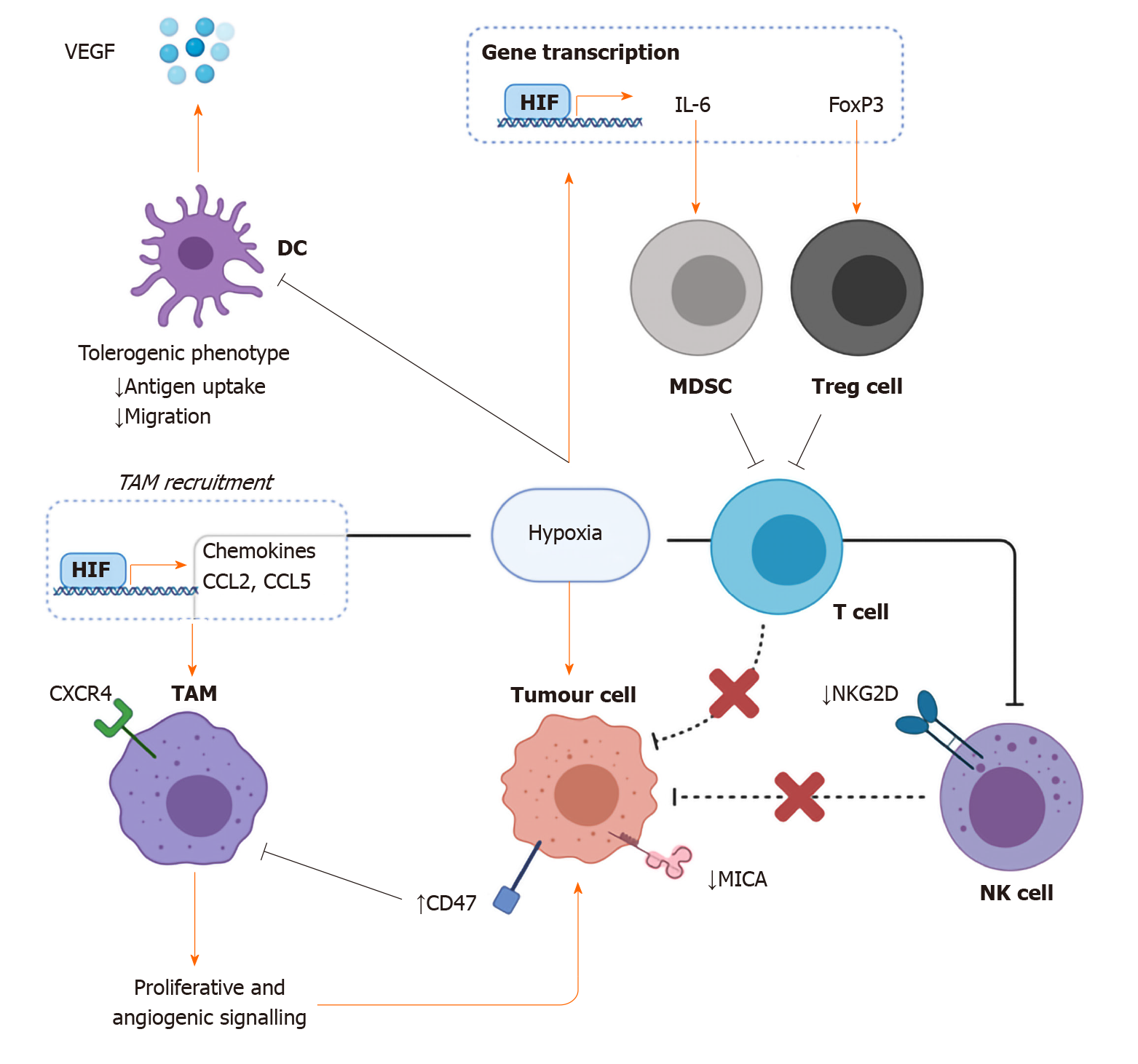Copyright
©The Author(s) 2021.
World J Gastrointest Oncol. May 15, 2021; 13(5): 312-331
Published online May 15, 2021. doi: 10.4251/wjgo.v13.i5.312
Published online May 15, 2021. doi: 10.4251/wjgo.v13.i5.312
Figure 4 The effects of hypoxia on immune evasion.
Hypoxia has been shown to impair antigen uptake and migration in dendritic cells while at the same time increasing vascular endothelial growth factor production thus impairing the bridge between the innate anticancer immune response and the adaptive response while also enhancing angiogenic signalling. Hypoxia-inducible factor-mediated transcription of the cytokine interleukin-6 and FoxP3 results in the subsequent recruitment of immunosuppressive myeloid derived suppressor cells and in increased proportion of protumourigenic Tregs respectively. Low oxygen status is also linked with decreased tumour expression of the natural killer (NK) cell receptor ligand MHC class I chain-related molecule A, as well as its receptor NKG2D on NK cells. Hypoxia-dependent transcription of chemokines such as CCL2 and CCL5 enhance the recruitment of tumour associated macrophages through receptors such as CXCR4. DC: Dendritic cell; MDSC: Myeloid derived suppressor cell; NK cell: Natural killer cell; TAM: Tumour associated macrophage; Treg cell: T regulatory cell; VEGF: Vascular endothelial growth factor; HIF: Hypoxia inducible factor; IL: Interleukin; MICA: MHC class I chain-related molecule A.
- Citation: King R, Hayes C, Donohoe CL, Dunne MR, Davern M, Donlon NE. Hypoxia and its impact on the tumour microenvironment of gastroesophageal cancers. World J Gastrointest Oncol 2021; 13(5): 312-331
- URL: https://www.wjgnet.com/1948-5204/full/v13/i5/312.htm
- DOI: https://dx.doi.org/10.4251/wjgo.v13.i5.312









